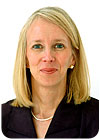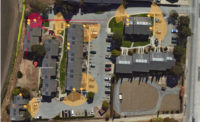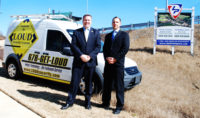
Chicago-based systems integrator Advanced Security Group is proof that a company does not have to be big to handle big clients. Dean Andrews, president, talked toSDMabout the company’s business model and what sophisticated clients are looking for in integrated security systems today.
SDM: Who are your typical clients and what are they looking for in integrated systems?
Andrews:We provide services for a fair amount of health care industries, industrial users and some government institutions. We tend to avoid the retail side of the business. Their basic interest is loss prevention. Our customers are interested in security -— what is happening in their facility — protecting their assets and people management. They want to know who’s in their facility, where they are and where they’ve been.
SDM:Why do they want to know that?
Andrews:One reason is an increased awareness since the events of Sept. 11. Another key factor is industrial espionage, which has increased dramatically. Protecting information has become key because of the ability to move data and information almost instantaneously — databases, drawings, customer lists, anything related to the operation and survival of the business. For example, with the advent of the cell phone camera, a person can take a picture and send it around the world to a competitor in seconds. Most companies do not have a cell phone policy and they should have one. They should either ask employees and customers to check their phones at the door or say they can only bring it in a facility if it does not contain a camera.
SDM: What type of integrated system do your clients typically buy?
Andrews:Many of our clients have multiple locations across the country or around the world. They prefer to have their security in a central location. Once a primary location is established, they then look to establish a backup command center, which can be activated in a matter of minutes, in case of an incident or an interruption at their primary facility.
The next issue would be to retrieve and analyze data as quickly as possible for either evidentiary purposes or for assessing an incident in progress. Third would be having the system perform some of the analysis. They want to be able to pick out an intruder or pick out someone on a blacklist without having to have a person do it all the time. Some systems can highlight an object or a particular person on the monitor and identify that person or object.
SDM: Are you using video analytics to do that, and is that something a lot of people are asking for?
Andrews:A lot of people ask about it until they find out the cost. But some companies really have a need for it — for example, a chemical plant that has a large perimeter to secure. One bad incident or chemical release can create bad press or a tarnished reputation. Public outcry or regulatory pressure, resulting from a bad incident could put enough pressure on the plant to cause a shutdown or restrictions on their operations. Customers try their best not to get to that point. Any company where security is tight and there are multiple risk factors involved usually can find the money in their budget.
SDM: How do clients choose you?
Andrews:Most of our business comes from referral or from professionals that we interact with. Many companies don’t know what to do when it comes to integrating their systems. A problem begins when management uses its usual security contractor. The contractor tends to provide a system that they are familiar with and may not be in the best interest of the company. We’ve seen a lot of institutions go to market this way. It normally turns out to be quite expensive and may not give them what they want. Many times we get called in by companies who have gone this route and are in trouble. They have spent a large amount of capital and are not getting the desired return. We tend to integrate more existing systems than install new systems from scratch.
SDM: Your company doesn’t have a big staff. How do you handle such large clients?
Andrews:Our main emphasis is focused on design, engineering and implementation. We tend to subcontract the installation to the local work force and provide project supervision. We actually make better margins because we are able to focus our resources. We have relationships with qualified people and companies in a multitude of markets, which gives ASG enhanced flexibility and a large pool of experienced resources.

